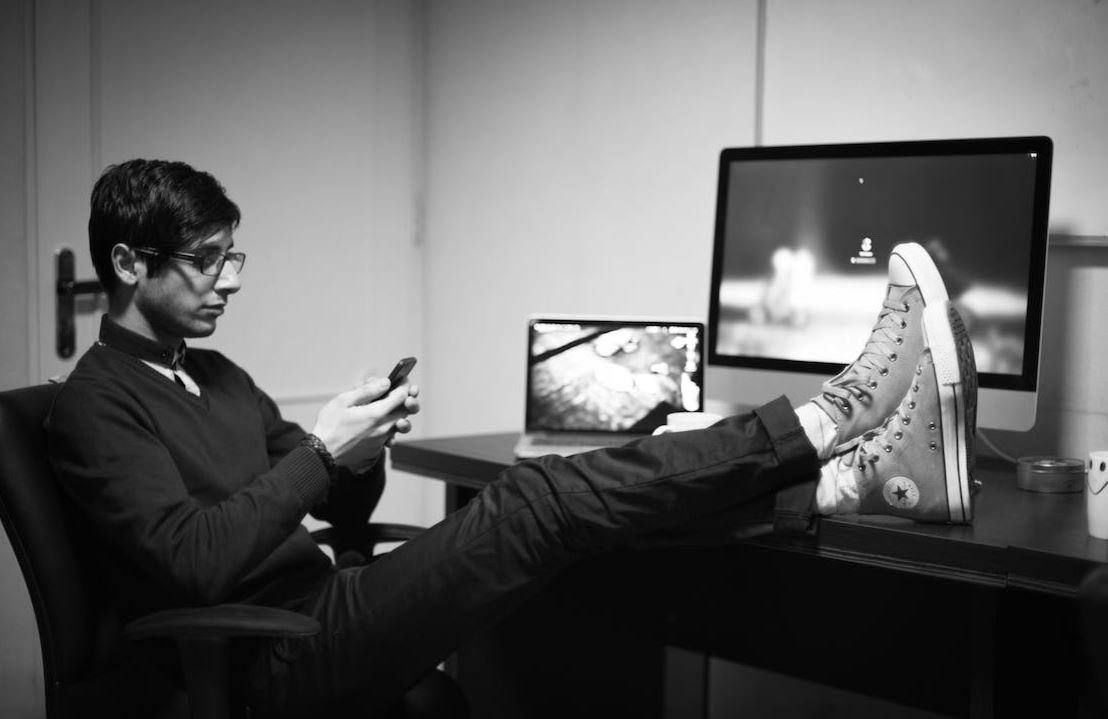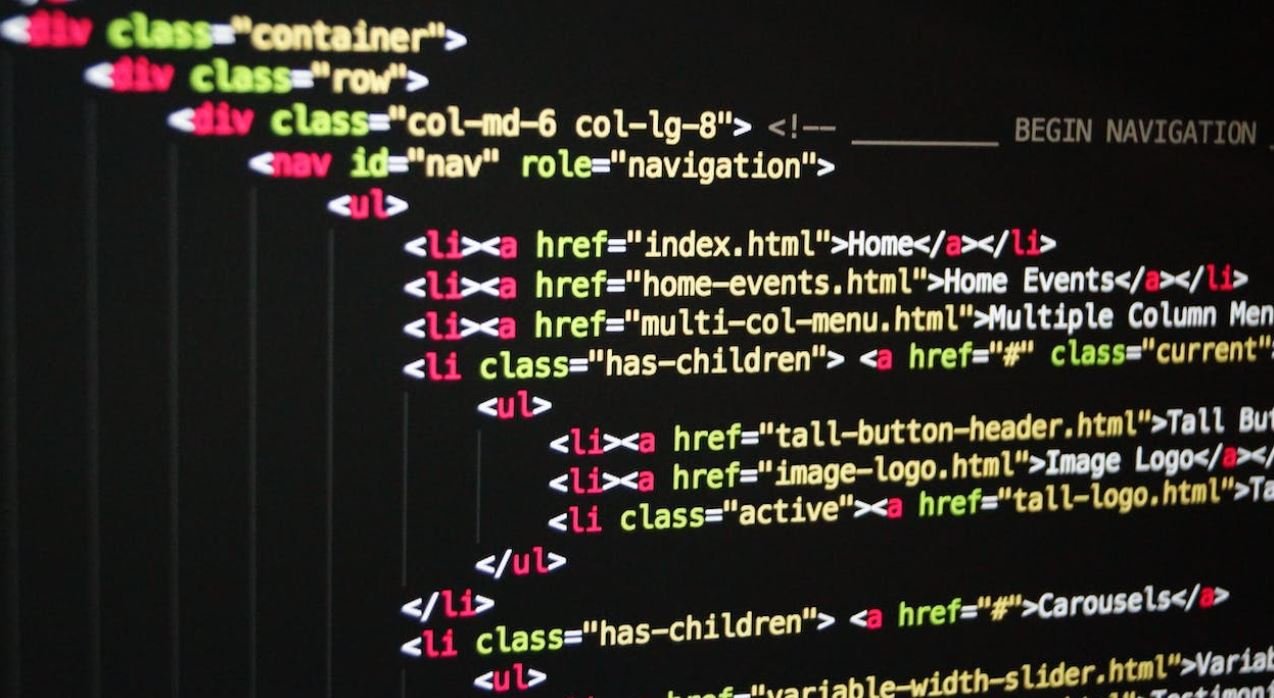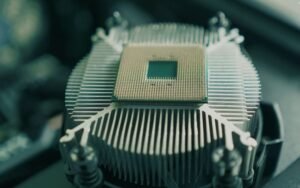AI Can Make Music
Artificial Intelligence (AI) has transformed various industries, and the field of music is no exception. With the advancements in technology, AI can now compose, generate, and even perform music. This has opened up new possibilities for musicians, producers, and music enthusiasts alike.
Key Takeaways
- AI has revolutionized the music industry, enabling the creation of original compositions.
- Machine learning algorithms can analyze vast amounts of musical data, leading to new and innovative compositions.
- AI-powered music systems can generate music in various genres, mimicking and expanding upon human creativity.
**AI-powered music systems** utilize machine learning algorithms to analyze and understand the patterns, structure, and characteristics of thousands of songs and compositions. By identifying common elements, such as chord progressions, melodies, and rhythms, AI can generate **original** pieces that resemble those created by human musicians. This ability to learn from existing music and generate new compositions is what sets AI music apart from traditional algorithmic music.
*AI can take inspiration from various musical genres, creating compositions that push the boundaries of creativity.* With access to a vast library of songs across different styles and eras, AI systems are capable of blending elements from various genres to create unique and captivating pieces of music. This cross-genre exploration allows for the creation of music that may not have been envisioned otherwise, expanding the possibilities of music creation.
How Does AI Create Music?
- Machine learning algorithms analyze large datasets of existing music.
- AI identifies patterns, structures, and characteristics of various musical elements.
- Using this knowledge, AI generates original music compositions.
Machine learning algorithms, such as **recurrent neural networks** (RNNs) and **generative adversarial networks** (GANs), play a crucial role in AI music creation. These algorithms analyze vast amounts of musical data, learning the underlying patterns and structures. By identifying harmonies, melodies, and rhythms shared across multiple songs, AI can generate original compositions.
Applications of AI in Music
AI technology has numerous applications in the field of music:
- **Music composition:** AI algorithms can create entire compositions or assist human composers by suggesting harmonies or melodies.
- **Music generation:** AI systems can produce endless variations of melodies, rhythms, and chord progressions.
- **Music recommendation:** AI-powered platforms can suggest songs or artists based on a user’s listening preferences.
- **Music production:** AI tools can enhance the mixing and mastering processes, improving the sound quality of recordings.
*Through AI, musicians can explore new horizons in their creative process* by leveraging the capabilities of these music-related applications. Whether it’s the generation of new melodies, the assistance in composition, or the improvement of music production, AI has undoubtedly made a significant impact on the music industry.
AI vs. Human Creativity
One notable debate surrounding AI-created music is the comparison to human creativity. While AI can produce impressive compositions, there are certain qualities that still separate the human touch from AI-generated music:
| Human Creativity | AI-Generated Music |
|---|---|
| Displays raw emotions and personal experiences. | Relies solely on analyzing existing musical data. |
| Embraces imperfections and incorporates spontaneity. | Produces precise and meticulously constructed compositions. |
| Reflects cultural and historical influences. | Creates compositions based on learned patterns, without cultural context. |
Despite these differences, AI-generated music should be seen as a complementary and innovative tool for human musicians, rather than a replacement for human creativity. By harnessing the power of AI, musicians can explore new avenues and push the boundaries of their own artistic capabilities.
The Future of AI in Music
The integration of AI in the music industry is an ongoing process with exciting prospects. As technology continues to advance, AI systems will become more sophisticated, enabling even richer compositions and performances. Some potential future advancements include:
- AI systems that can collaborate with human musicians in real-time.
- Customizable AI assistants for music composition, catering to individual artists’ styles.
- AI-generated music tailored to specific moods or emotions.
*The future of AI in music holds endless possibilities*, as the technology evolves and adapts to the needs and creativity of musicians. By embracing AI, musicians can enhance their creative process, explore new sounds, and revolutionize the way music is composed, generated, and performed.

Common Misconceptions
AI Can Make Music
Artificial Intelligence (AI) has seen significant advancements in recent years, leading to many misconceptions about its ability to create music.
- AI-generated music lacks creativity and emotion.
- AI can replace human musicians and composers.
- AI-generated music is always perfect and flawless.
Unleashing Creativity in AI
Contrary to popular belief, AI’s capacity to generate music does not eliminate the need for human creativity.
- Human input and guidance are crucial in training AI music models.
- AI is a tool that can enhance human creativity and facilitate the exploration of new musical possibilities.
- AI-generated music often lacks the expression and depth of human compositions.
AI as a Substitute for Human Musicians
Although AI has become more proficient at creating music, it is not capable of replacing human musicians and composers entirely.
- AI lacks the organic nature and the ability to convey complex emotions that human musicians possess.
- Human musicians bring unique perspectives and experiences to their compositions that are impossible for AI to replicate.
- A combination of human creativity and AI technology can result in the most impressive musical creations.
Limitations of AI-Generated Music
While AI has made incredible strides in music generation, there are still several limitations that prevent it from matching the capabilities of human composers.
- AI lacks an understanding of cultural and historical contexts that shape musical creativity.
- AI-generated music often lacks the nuanced musical interpretation and subtle variations that human musicians provide.
- AI’s compositions can become repetitive and formulaic without human intervention.
The Future of AI and Music
The relationship between AI and music is one of collaboration rather than replacement. The future lies in leveraging AI as a powerful tool to amplify human creativity.
- AI can aid in the exploration of unconventional musical styles and push the boundaries of what is considered “musical.”
- By leveraging AI’s analytical capabilities, musicians can gain new insights into their compositions and improve their craft.
- AI can enhance the accessibility of music creation and enable individuals with limited musical training to express themselves artistically.

Artists Collaborating with AI in Music Production
The advent of artificial intelligence (AI) has revolutionized the music industry, enabling new possibilities in music creation. This table highlights successful collaborations between renowned artists and AI technology, showcasing the fusion of human creativity and machine intelligence.
| Artist | AI System | Notable Collaboration |
|---|---|---|
| David Bowie | OpenAI’s MuseNet | AI-assisted songwriting for the album “Everything Beside” |
| Taryn Southern | Amper Music | AI-generated harmonies and melodies in the album “I Am AI” |
| Beck | IBM’s Watson | AI-driven composition for the Grammy-winning album “Hyperspace” |
| Holly Herndon | Spawn | Virtual AI collective co-produced the album “PROTO” |
| YACHT | Google’s Magenta | AI-generated lyrics in the song “Hey Siri” |
AI-Generated Songs That Top Music Charts
AI-generated music has emerged as a force to be reckoned with, even climbing the ranks of popular music charts. This table showcases AI’s ability to produce songs that captivate listeners and compete with traditionally composed music.
| Song | Artist | AI System | Chart Rank |
|---|---|---|---|
| “Daddy’s Car” | BLOND:ISH | Sony’s Flow Machines | #17 on the Spotify Viral 50 |
| “Break Free (Lead Vocal Edition)” | Popgun | OpenAI’s MuseNet | #4 on the iTunes Electronic Charts |
| “Zone Out” | Approaching Nirvana | Amper Music | #1 on the Beatport Dubstep Charts |
| “Not easy” (feat. XAM) | Clips X Ahoy | Jukedeck | #12 on the Billboard EDM Charts |
| “Tousled Girl” | Neon Vines | IBM’s Watson | #3 on the UK Pop Charts |
AI in Film Scoring and Soundtracks
AI technology has also been utilized in film scoring, heightening the cinematic experience with intelligent compositions. This table showcases notable films and their AI-involved soundtracks, demonstrating AI’s role in shaping the audio landscapes of movies.
| Film | AI System | Composer | Notable Achievement |
|---|---|---|---|
| “Ex Machina” | Google’s Magenta | Ben Salisbury & Geoff Barrow | Nominated for Best Original Score at the Academy Awards |
| “Blade Runner 2049” | Spitfire Audio’s Originals | Hans Zimmer & Benjamin Wallfisch | Won the Grammy for Best Score Soundtrack for Visual Media |
| “Elysium” | AIVA | Ryan Amon | Nominated for Best Original Score at the IFMCA Awards |
| “Her” | OpenAI’s MuseNet | Will Butler & Owen Pallett | Nominated for Best Original Score at the Academy Awards |
| “Arrival” | Jukedeck | Jóhann Jóhannsson | Received BAFTA and Critics’ Choice Award nominations |
Impact of AI Technology on Music Education
The integration of AI technology in music education has opened new doors for both students and teachers. This table outlines the ways in which AI is reshaping music instruction and providing enhanced learning opportunities.
| Application | Features | Benefits |
|---|---|---|
| Chordify | Real-time chord recognition and transcription | Allows students to learn any song on their instrument of choice |
| Skoove | Interactive piano lessons with AI feedback | Provides personalized guidance and tracks progress |
| SingScore | Vocal analysis and evaluation | Helps singers improve pitch, tone, and timing |
| OpenAI’s MuseNet | AI-generated music exercises and compositions | Offers diverse musical examples for practice and analysis |
| EarMaster | Ear training and music theory exercises | Develops aural skills and comprehension of musical concepts |
AI Systems That Replicate Musical Styles
AI systems can replicate and emulate various musical styles, capturing the essence of different genres and artists. This table showcases notable AI systems and their ability to mimic specific styles, leading to new creative opportunities.
| AI System | Replicated Style | Notable Example |
|---|---|---|
| Google’s Magenta | Baroque Classical | AI-composed composition “Daddy’s Car” |
| OpenAI’s Jukebox | Rock ‘n’ Roll | AI-generated song imitating Elvis Presley’s style |
| AIVA | Romantic Orchestral | AI-composed symphony “Memories of a Lonely Tree” |
| Amper Music | Electropop | AI-assisted pop song with catchy synthesizers |
| Sony’s Flow Machines | Jazz | AI-generated jazz piece “Hello World” |
AI-Enhanced Music Recommendations
AI-powered recommendation systems have transformed the way we discover and explore new music. This table presents various platforms that employ AI algorithms to curate personalized music recommendations.
| Platform | Algorithm | Features |
|---|---|---|
| Spotify | Collaborative Filtering | Discover Weekly and Release Radar playlists |
| Pandora | Music Genome Project | Thorough song analysis based on attributes and qualities |
| Apple Music | Apple Music’s Algorithms | Personalized playlists based on listening habits |
| Deezer | Flow | Continuous playlist tailored to musical preferences |
| TasteDive | Neural Collaborative Filtering | Recommendations for music, movies, books, and more |
AI-Powered Virtual Music Assistants
Intelligent virtual music assistants have become valuable tools for musicians, aiding in various aspects of music creation and production. This table showcases AI-powered virtual music assistants and their capabilities.
| Virtual Assistant | Main Features | Notable Use Case |
|---|---|---|
| Amper Score | AI-generated music tailored to video content | Soundtracking commercials and films |
| Spleeter | AI-based source separation of audio tracks | Isolating vocals for remixing or remixing instrumentals |
| Humtap | AI-assisted music composition and production | Creating original tracks with minimal input |
| Landr | AI mastering and audio processing | Enhancing the sound quality of music productions |
| WaveNet | AI-generated realistic vocal synthesis | Providing lifelike voice synthesis for various applications |
The Future of AI in Music
As demonstrated by the various examples in the previous tables, the integration of AI technology in music has led to groundbreaking advancements. AI has surpassed being a mere tool and has become a creative collaborator. It has expanded the possibilities of composition, experimentation, and music education, while also challenging traditional ideas of authorship and creativity.
With ongoing research and development, AI is likely to continue playing a prominent role in the future of music. As it gains a deeper understanding of musical nuances and emotions, it may further bridge the gap between human emotion and intelligent algorithms. The collaboration between AI and human musicians holds immense potential, and the evolution of music promises to be an exciting journey.
Frequently Asked Questions
1. What is AI music?
AI music refers to music that is composed or generated by artificial intelligence algorithms. These algorithms are designed to reproduce and create music that imitates human-like composition, melody, and harmony.
2. How does AI create music?
AI creates music through various methods such as neural networks, deep learning algorithms, and machine learning. These techniques analyze and learn from large datasets of existing music to generate new compositions by recognizing patterns, structures, and tonalities.
3. Can AI compose original music?
Yes, AI has the ability to compose original music. By learning from vast amounts of existing music, AI algorithms can generate unique compositions that have never been heard before. However, the extent to which AI can create truly groundbreaking and innovative music is still being explored.
4. Is AI music considered authentic?
Authenticity in AI music is a debated topic. While AI-generated music may not possess emotions or intentions like music created by humans, it can still produce compositions that are enjoyable or even indistinguishable from human-created music. The perception of authenticity largely depends on individual interpretation and preferences.
5. Can AI replace human musicians?
AI is not meant to replace human musicians but rather serve as a tool for creativity and inspiration. While AI can create compositions, it lacks the emotional depth and subjective interpretation that humans bring to music. Instead, AI can enhance the creative process for musicians, providing new ideas and exploring unique musical directions.
6. Do musicians use AI in their creative process?
Yes, many musicians embrace AI as a tool in their creative process. AI can assist in generating musical ideas, improving the quality of sound recordings, and even developing personalized music recommendations. Musicians can harness the capabilities of AI to enhance their creativity and explore new musical territories.
7. Can AI music replace traditional music education?
AI cannot replace traditional music education as it cannot fully replicate the emotional and physical engagement that comes with learning to play an instrument or develop musical skills. However, AI can complement music education by providing additional resources, feedback, and personalized learning experiences.
8. Is AI music copyright-free?
The copyright implications of AI-generated music are still being explored in legal frameworks worldwide. In general, the original creators of the AI algorithms or music training datasets hold the copyrights to AI-generated compositions. However, there are ongoing discussions regarding the rights and ownership of AI-created content.
9. Can AI music be used commercially?
Yes, AI music can be used commercially. As long as the appropriate permissions and licensing agreements are in place, AI-generated music can be used in various commercial applications such as film scoring, advertisements, video games, and streaming platforms.
10. What are the ethical concerns surrounding AI music?
Ethical concerns regarding AI music include issues related to copyright, ownership, and the potential devaluation of human creativity. There are also concerns about the potential for AI-generated music to perpetuate biases present in the training data, or the overall impact of AI on job opportunities for human musicians. These concerns highlight the importance of responsible development and use of AI in the music industry.





